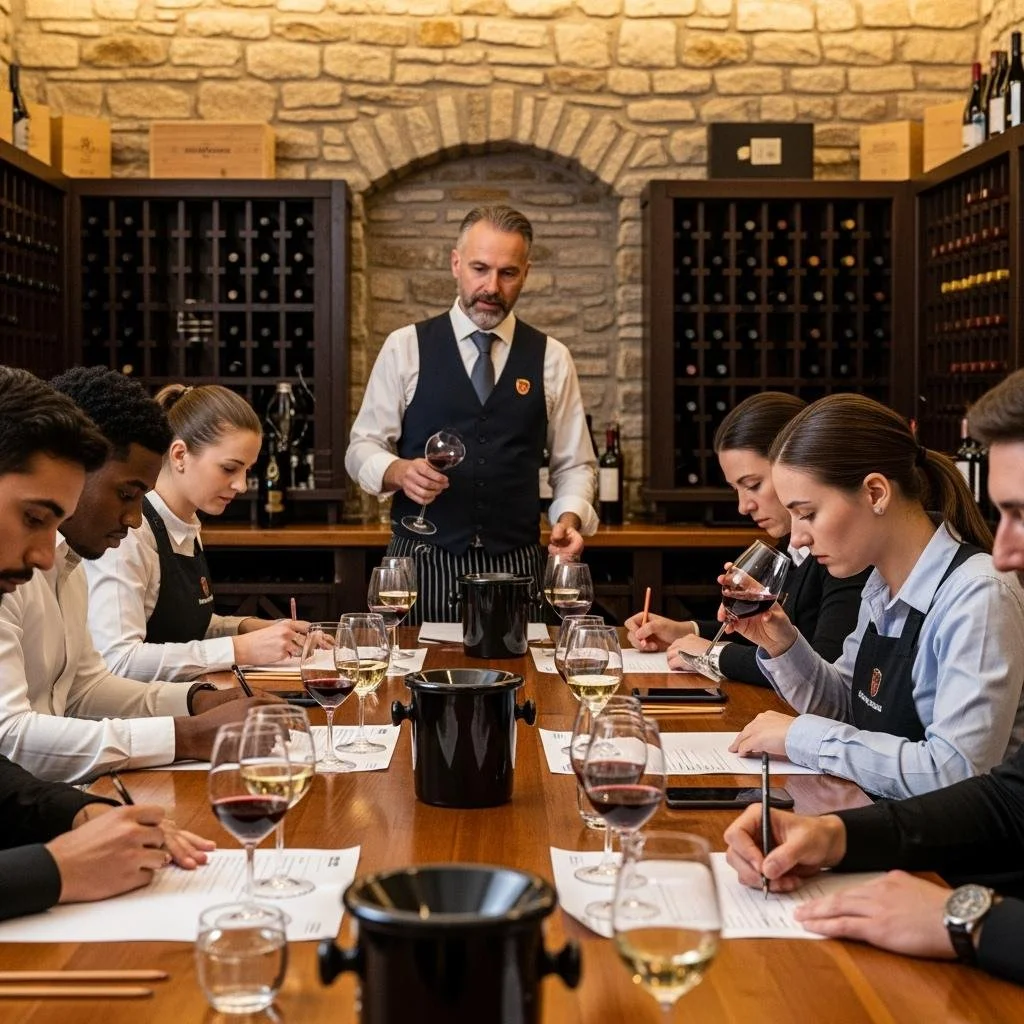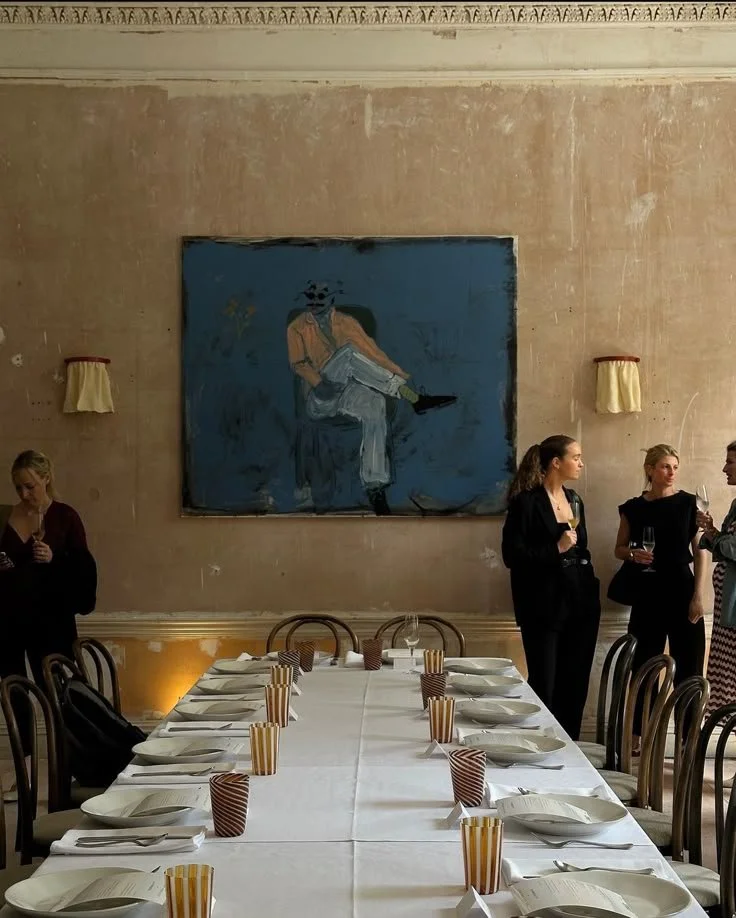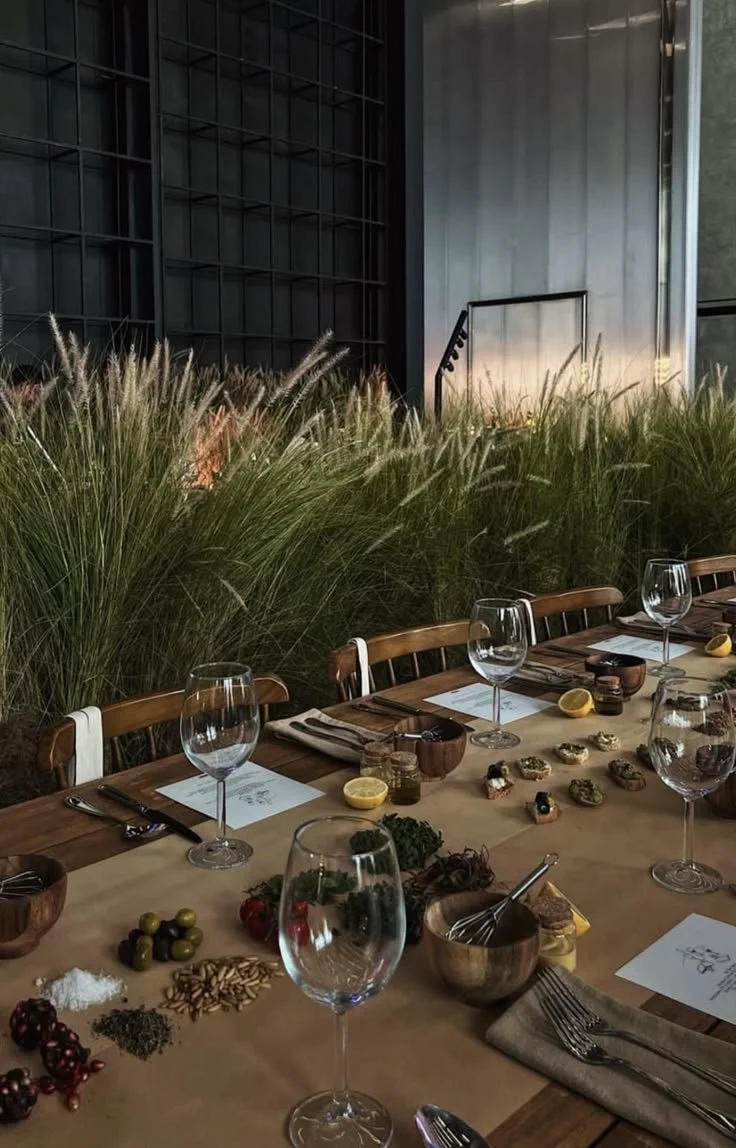Top Skills You’ll Learn In Sommelier Training
Becoming a sommelier is more than just acquiring a refined palate—it’s a disciplined journey rooted in centuries of viticultural tradition, hospitality excellence, and cultural appreciation. As the wine industry continues to evolve, the role of a sommelier remains a cornerstone of fine dining and wine education, blending deep technical knowledge with interpersonal finesse.
Whether working in a Michelin-starred restaurant or curating a boutique wine list, sommeliers are ambassadors of taste, tradition, and terroir. Their training encompasses a wide array of essential skills, from understanding the nuances of global wine regions to mastering the art of food pairing and customer service.
In this article, we explore the core competencies developed during sommelier training and how they shape professionals who elevate the wine experience for every guest they serve.
No. 1
Essential Wine Knowledge and Viticulture
Sommelier training begins with a comprehensive study of viticulture (grape cultivation) and enology (winemaking). This foundational knowledge is essential for understanding how grape varieties, climate conditions, and soil types influence the flavor, aroma, and texture of wine.
Trainees delve into the world’s most renowned wine regions—Bordeaux, Napa Valley, Tuscany, and beyond—to grasp the unique characteristics that define each terroir. This global perspective enables sommeliers to make informed recommendations and design wine menus that celebrate regional diversity.
The importance of vintage is also emphasized, teaching how the harvest year and weather patterns affect wine quality and aging potential. Ethical and sustainable viticulture practices are integral to this education, highlighting how environmentally conscious farming impacts the final product.
This blend of scientific insight, geographic literacy, and environmental awareness forms the backbone of a sommelier’s expertise.
No. 2
Mastering the Art of Wine Tasting and Flavor Profiles
At the heart of sommelier training lies the refined art of wine tasting. Through a structured sensory analysis, students learn to evaluate wine based on appearance, aroma, and palate. This process involves identifying key components such as:
Tannins
Acidity
Sweetness
Alcohol content
These elements shape the overall tasting experience and inform pairing decisions. Sommeliers are trained to detect wine faults—such as cork taint or oxidation—and ensure only the highest quality is served to guests.
Professional tastings follow strict protocols, and sommeliers must be able to articulate their insights clearly to both novices and connoisseurs. With extensive practice, they develop heightened sensory awareness and the ability to distinguish subtle flavor variations across varietals and vintages.
This refined palate becomes a powerful tool in delivering memorable wine experiences.
No. 3
Pairing Food and Wine for the Ultimate Culinary Experience
One of the most celebrated aspects of sommelier expertise is the ability to pair wine with food in ways that elevate both. Training emphasizes the principles of flavor harmony and contrast, teaching how to balance body, acidity, sweetness, and tannins to complement a wide range of dishes.
Sommeliers also explore the cultural and historical connections between regional cuisines and local wines. This knowledge allows them to craft pairings that honor culinary traditions while embracing global influences.
Collaboration with chefs is a key component, as sommeliers often work closely with culinary teams to develop cohesive menus. Their input ensures that wine selections enhance the overall dining experience, appealing to diverse palates and preferences.
Through this synergy, sommeliers transform meals into multisensory journeys.
First Leaf Wine
First Leaf is a leading wine company and subscription service offering wines curated from the best regions, varietals, and styles from all over the world
No. 4
Building Exceptional Customer Service and Sales Skills
While technical knowledge is vital, a sommelier’s success also hinges on exceptional customer service, sales techniques, and interpersonal skills. Sommeliers act as the face of a restaurant’s wine program, guiding guests through the wine list, understanding their preferences, and making personalized recommendations.
Key elements of this training include:
Active listening and guest engagement
Subtle upselling techniques
Educating guests without overwhelming them
Sommeliers also manage behind-the-scenes operations such as inventory control, supplier negotiations, and pricing strategies. They curate dynamic wine lists that reflect both seasonal trends and customer preferences.
Leadership is another critical skill, as sommeliers often mentor junior staff, conduct tastings, and train teams on wine service standards. Their ability to inspire and educate enhances the overall guest experience and contributes to the establishment’s success.
No. 5
Understanding Wine Laws and Ethical Sommelier Practices
Navigating the legal landscape of the wine industry is essential for any sommelier. Training includes a thorough understanding of regional and international wine laws, including regulations around:
Alcohol sales and consumption
Labeling and appellation systems
Import/export restrictions
Equally important are the ethical responsibilities that come with the role. Sommeliers are trained to:
Serve alcohol responsibly
Identify signs of intoxication
Refuse service when necessary
Integrity is paramount. Ethical sommeliers prioritize honesty in wine representation, recommending selections based on quality and guest satisfaction rather than profit. Integrity in service fosters trust and respect in the hospitality industry.
Ongoing education ensures that sommeliers remain current with evolving laws, industry standards, and best practices—empowering them to serve with professionalism and accountability.
Takeaways
The path to becoming a sommelier is both rigorous and rewarding, blending science, art, culture, and service into a single, elegant profession. From mastering the complexities of viticulture to delivering exceptional customer experiences, sommeliers are trained to elevate every aspect of wine appreciation.
Their role extends far beyond pouring a glass—they are storytellers, educators, and curators of sensory experiences. Through a deep commitment to knowledge, ethics, and hospitality, sommeliers inspire others to discover the beauty and complexity of the wine world.
Whether guiding a guest through a perfect pairing or managing a world-class wine program, the skills honed during sommelier training empower professionals to thrive in a dynamic and ever-evolving industry.
Looking for Business resources?
Are you seeking ways to elevate your business to new heights? Dive into the array of resources provided by our esteemed business partners designed to empower your ventures.































